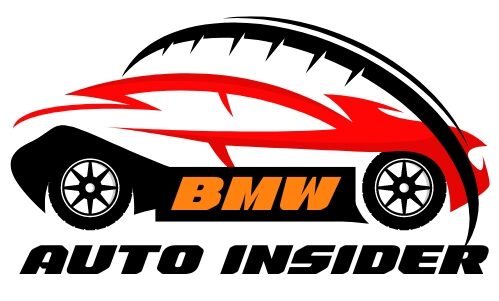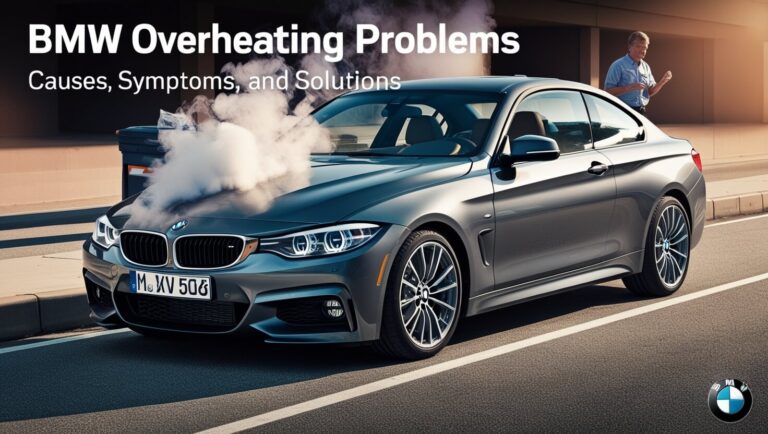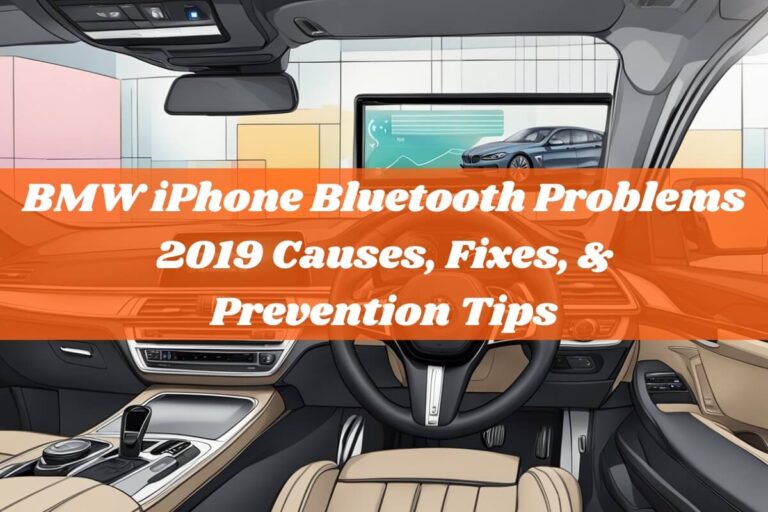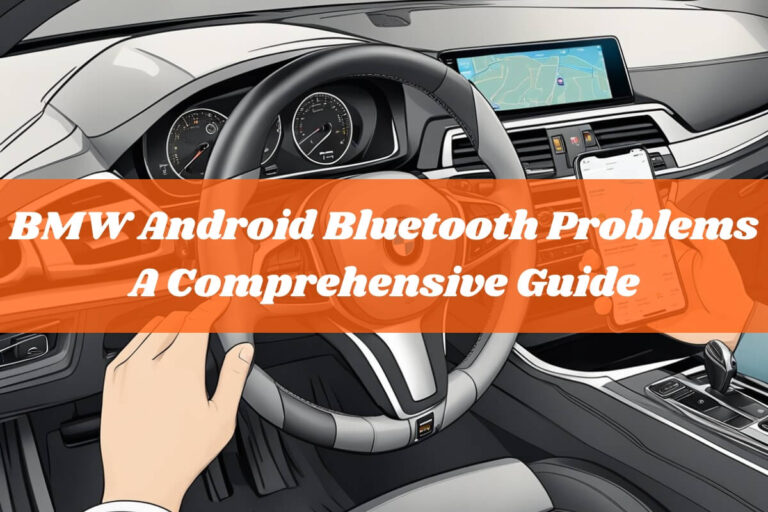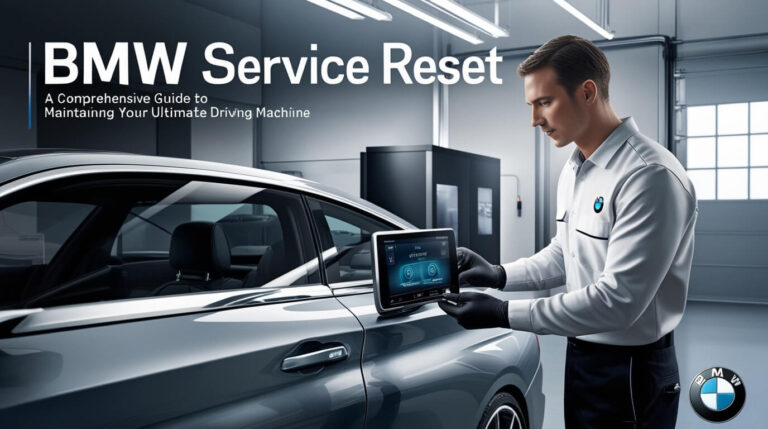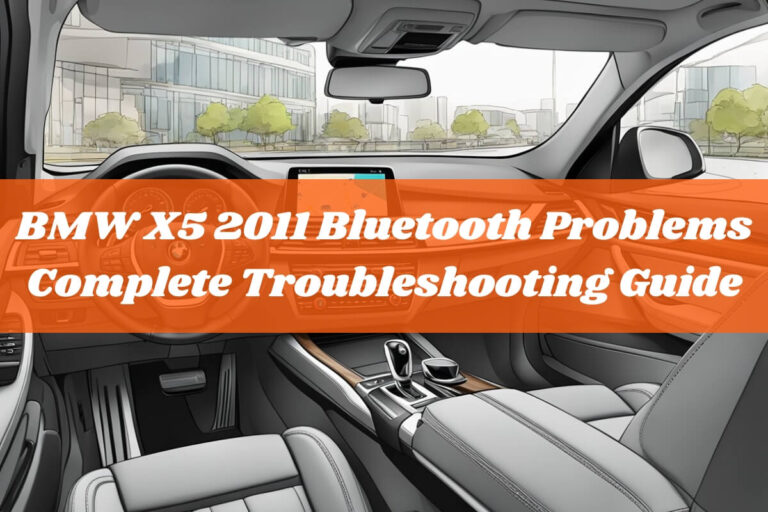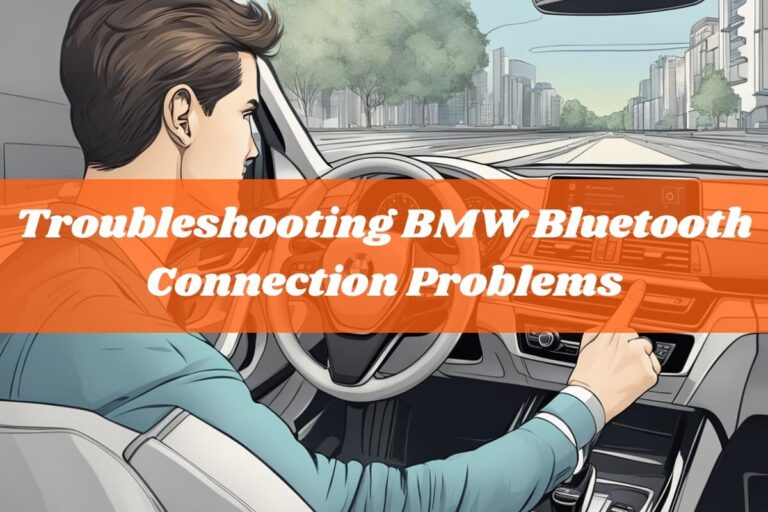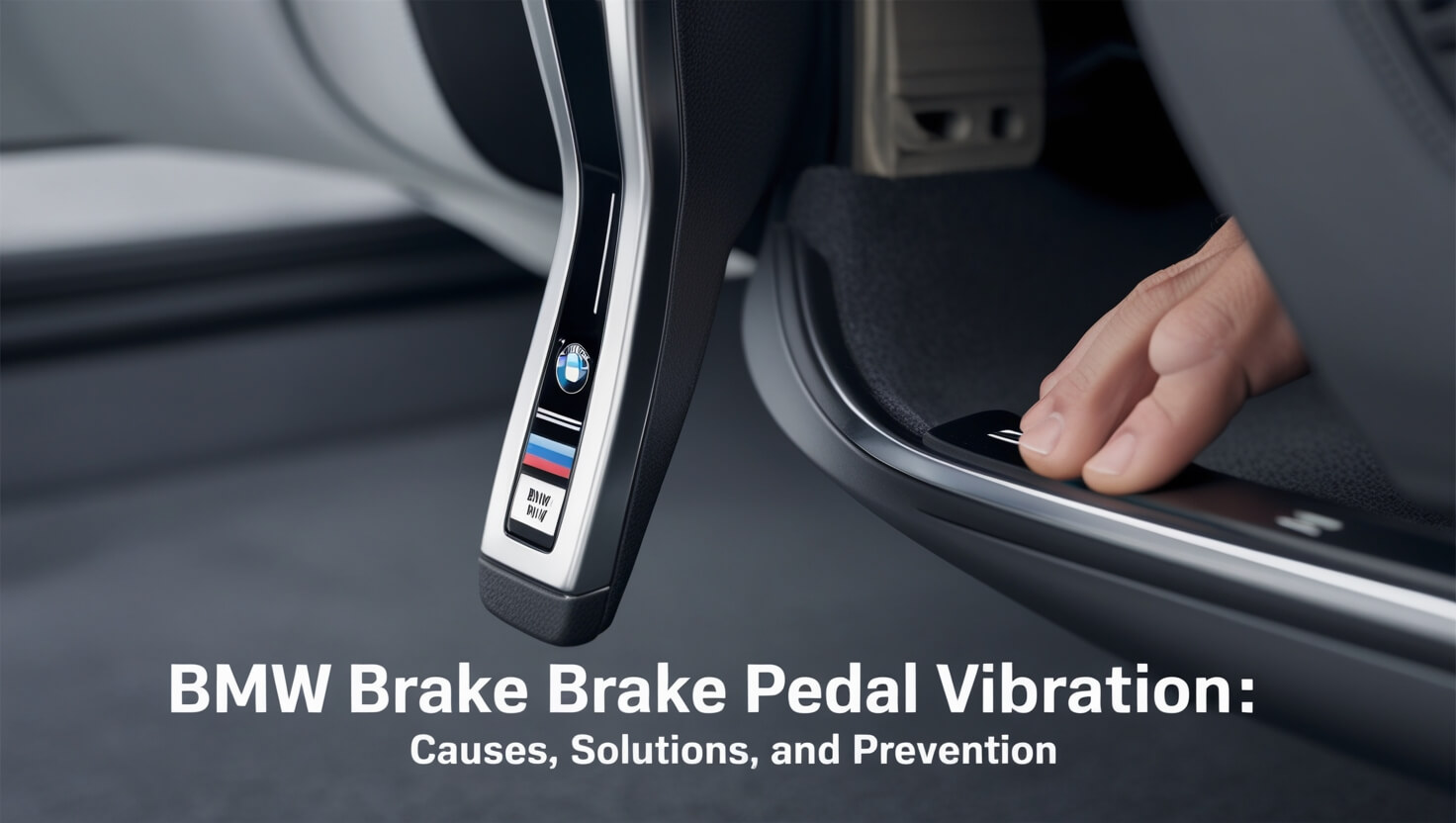
BMW brake pedal vibration is a common issue that can affect driving comfort and safety. It’s often caused by warped rotors, worn brake pads, or uneven pad deposits. Solutions range from resurfacing rotors to replacing brake components. Regular maintenance and proper braking techniques can help prevent this problem.
BMW cars are known for their performance and driving experience. But even these well-engineered machines can develop issues over time. One of the most annoying problems BMW owners face is brake pedal vibration. It’s not just uncomfortable – it can be dangerous too.
Let’s dive into the world of BMW brakes and find out why your pedal might be shaking. We’ll explore the causes, learn how to fix them, and discover ways to keep your brakes smooth in the future.
Understanding BMW Brake Systems
Before we tackle the vibration issue, let’s get to know your BMW’s brakes better.
Components of BMW Brake Systems
BMW brakes are complex systems with several key parts:
- Brake rotors (discs)
- Brake pads
- Calipers
- Brake lines
- Brake fluid
- Master cylinder
Each component plays a crucial role in stopping your car safely.
How BMW Brakes Function
When you press the brake pedal, it triggers a chain reaction:
- The pedal pushes a piston in the master cylinder.
- This forces brake fluid through the lines.
- The fluid pressure activates the calipers.
- Calipers squeeze the pads against the rotors.
- Friction between pads and rotors slows the car.
It’s a simple concept, but there’s a lot that can go wrong.
Common Causes of BMW Brake Pedal Vibration
Now, let’s look at why your BMW’s brake pedal might be shaking.
Warped Brake Rotors
Warped rotors are a leading cause of brake pedal vibration. But what causes them to warp?
- Extreme heat from heavy braking
- Uneven cooling after use
- Manufacturing defects
- Improper installation
When rotors warp, they create an uneven surface. This leads to pulsing when you brake.
Worn Brake Pads
Brake pads wear down over time. When they get too thin, they can cause vibrations:
- Uneven wear leads to pulsing
- Metal-on-metal contact if completely worn
- Damaged rotors from worn pads
Regular pad checks can prevent these issues.
Stuck Brake Calipers
Calipers can sometimes stick, causing:
- Uneven pressure on rotors
- Excessive heat buildup
- Premature wear on pads and rotors
A stuck caliper often leads to pulling to one side when braking.
Uneven Pad Deposits
Sometimes, material from the brake pads can deposit unevenly on the rotors:
- Caused by cheap or wrong type of pads
- Results in vibration similar to warped rotors
- Can happen suddenly after hard braking
This issue often resolves with proper bedding of new pads.
Wheel Alignment Issues
While not directly related to brakes, poor alignment can cause vibrations:
- Uneven tire wear affects braking
- Misaligned wheels put stress on brake components
- Can mimic symptoms of brake problems
Regular alignment checks are crucial for overall vehicle health.
Diagnosing BMW Brake Pedal Vibration
Figuring out why your brake pedal is vibrating is the first step to fixing it.
Identifying Vibration Patterns
Different vibration patterns can point to specific issues:
- Constant vibration: Likely wheel balance or alignment problem
- Vibration only when braking: Probable brake system issue
- Vibration at specific speeds: Could be tire or driveshaft related
Pay attention to when and how the vibration occurs.
Professional Diagnostic Tools
BMW specialists use advanced tools to pinpoint brake issues:
- Brake lathe to measure rotor runout
- Computerized wheel balancers
- Alignment rack for precise measurements
These tools provide accurate diagnoses of complex problems.
DIY Inspection Methods
You can perform some checks at home:
- Visual inspection of rotors for scoring or grooving
- Check brake pad thickness
- Look for uneven wear patterns on tires
- Listen for unusual noises when braking
While DIY checks are helpful, professional inspections are more thorough.
Solutions for BMW Brake Pedal Vibration
Once you’ve identified the cause, it’s time to fix it.
Resurfacing Brake Rotors
For minor warping, resurfacing might be enough:
- Removes a thin layer of rotor material
- Creates a smooth, even surface
- Less expensive than replacement
- Not always possible if rotors are too thin
Resurfacing is a temporary fix in some cases.
Replacing Brake Components
Sometimes, replacement is the best option:
- New rotors for severe warping
- Fresh brake pads if too worn
- Caliper replacement for sticking issues
Quality parts are crucial for lasting repairs.
Proper Brake Bedding Techniques
After installing new brakes, proper bedding is essential:
- Gradually builds up heat in new components
- Transfers an even layer of pad material to rotors
- Prevents future vibration issues
- Improves overall brake performance
Many shops skip this crucial step, so ask about it.
Preventing BMW Brake Pedal Vibration
Prevention is always better than cure.
Regular Maintenance Schedule
Stick to BMW’s recommended maintenance:
- Regular brake fluid changes
- Pad and rotor inspections
- Timely replacements when needed
Don’t skip scheduled services to save money – it often costs more in the long run.
Proper Braking Techniques
How you use your brakes matters:
- Avoid riding the brakes
- Don’t brake hard just before stopping
- Give brakes time to cool after heavy use
- Use engine braking on long descents
Good habits extend brake life and prevent issues.
Choosing Quality Brake Parts
Not all brake parts are created equal:
- OEM parts match BMW’s specifications
- High-quality aftermarket parts can be good alternatives
- Avoid cheap, no-name brands
- Consider upgrading for high-performance driving
Investing in good parts saves money and hassle over time.
When to Seek Professional Help
Some brake issues are best left to the experts.
Signs of Severe Brake Issues
Watch for these red flags:
- Grinding noises when braking
- Brake pedal feels spongy or goes to the floor
- Car pulls to one side when braking
- Brake warning light on the dashboard
These symptoms need immediate professional attention.
Finding a Reputable BMW Specialist
Choose your mechanic wisely:
- Look for BMW-certified technicians
- Check online reviews and ratings
- Ask for recommendations from other BMW owners
- Don’t be afraid to ask questions about their experience
A good specialist can save you time and money in the long run.
Impact of Brake Pedal Vibration on Driving Safety
Brake vibration isn’t just annoying – it’s potentially dangerous.
Reduced Braking Efficiency
Vibrating brakes can be less effective:
- Uneven contact between pads and rotors
- Longer stopping distances
- Unpredictable brake performance
This can be especially dangerous in emergency situations.
Increased Stopping Distances
Vibration can lead to:
- Hesitation in applying brakes fully
- Less friction between pads and rotors
- Overcompensation by the driver
Even a small increase in stopping distance can be critical.
Driver Fatigue and Distraction
Constant vibration takes a toll:
- Physical fatigue from resisting vibration
- Mental distraction from the sensation and noise
- Reduced focus on the road and traffic
Safe driving requires full attention and comfort.
BMW Models Prone to Brake Pedal Vibration
While any BMW can develop brake issues, some models are more susceptible.
Common BMW Series Affected
Certain series have reported more frequent brake vibration:
- 3 Series (E46, E90)
- 5 Series (E60, F10)
- X5 (E53, E70)
This doesn’t mean these models are bad – just that owners should be more vigilant.
Model-Specific Considerations
Different models have unique quirks:
- Heavier models may wear brakes faster
- Performance models might need more frequent brake service
- Newer models with regenerative braking have different wear patterns
Understand your specific model’s needs for best maintenance.
Myths and Misconceptions about BMW Brake Pedal Vibration
Let’s clear up some common misunderstandings:
- Myth: All vibrations mean warped rotors Reality: Many issues can cause vibration, not just warped rotors.
- Myth: Cheap brake pads are fine for daily driving Reality: Low-quality pads can cause more problems and wear out faster.
- Myth: Brake vibration always requires new rotors Reality: Sometimes resurfacing or proper bedding can solve the issue.
- Myth: BMW brakes are unreliable Reality: With proper care, BMW brakes are highly effective and durable.
- Myth: You can’t prevent brake pedal vibration Reality: Regular maintenance and good driving habits can prevent many issues.
Understanding these myths helps you make better decisions about your BMW’s brakes.
Conclusion
BMW brake pedal vibration is a common but solvable problem. By understanding the causes, recognizing symptoms, and taking preventive measures, you can keep your BMW’s brakes smooth and effective. Regular maintenance, quality parts, and good driving habits go a long way in preventing vibration issues.
Remember, your brakes are crucial for safety. Don’t ignore vibrations or other brake problems. When in doubt, consult a professional BMW specialist. They can diagnose issues accurately and provide the right solutions.
With the right care, your BMW can deliver the smooth, confident braking experience it was designed for. Stay safe, and enjoy the ultimate driving machine!
